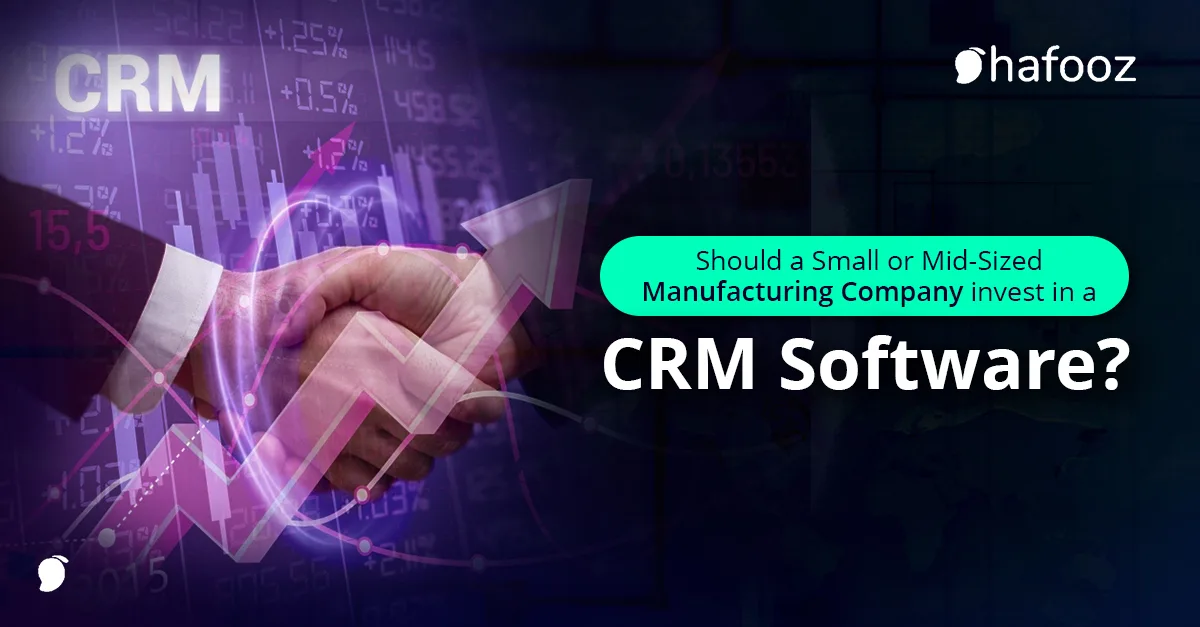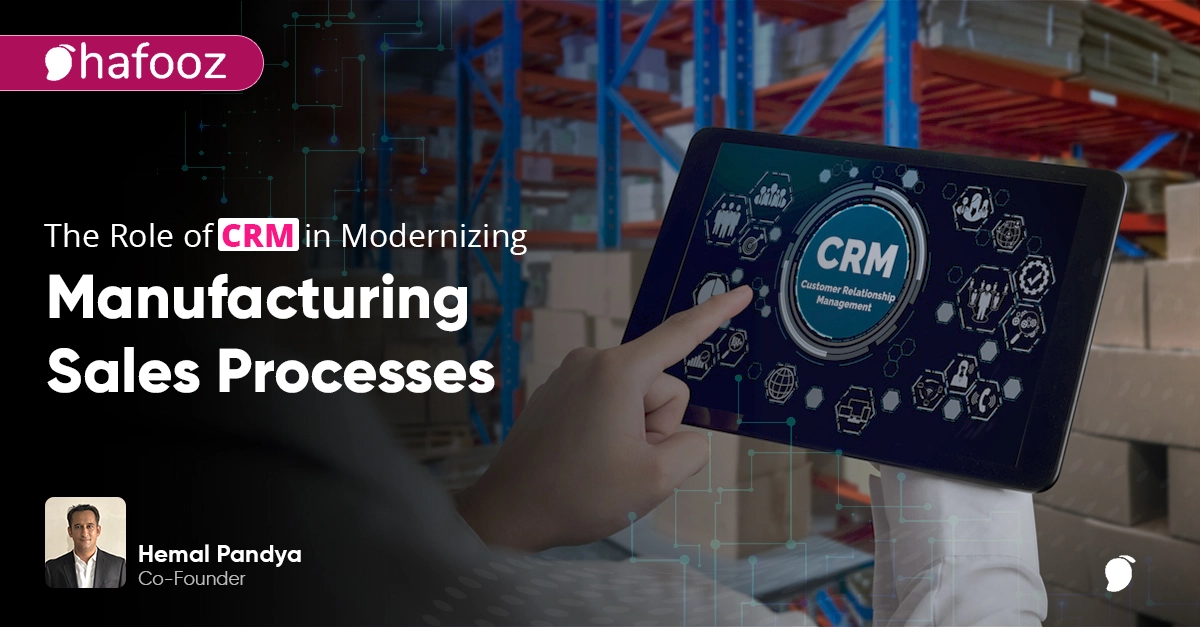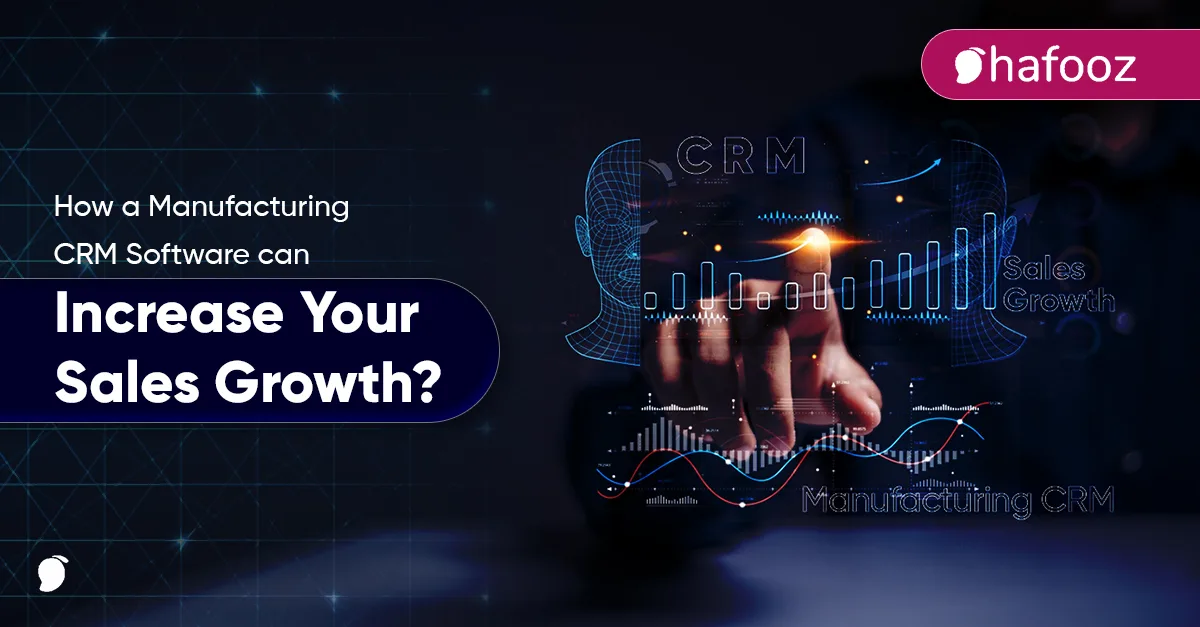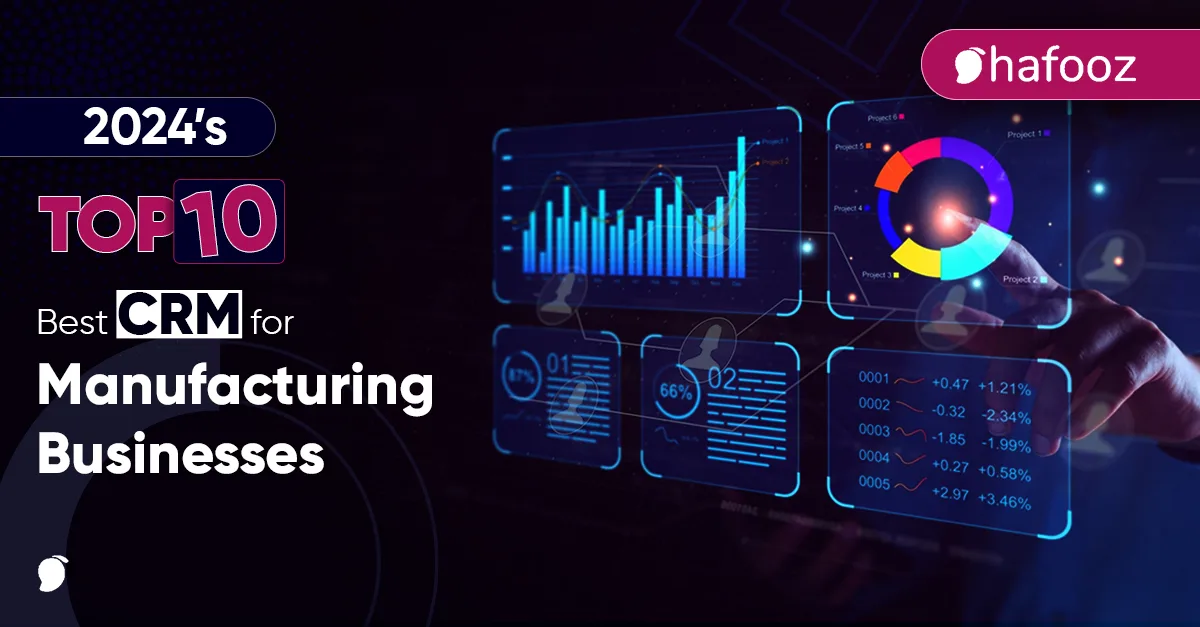Is your business growing? Is it getting difficult for your sales team to manage new orders and client interactions?
As businesses grow, managing customer relationships becomes challenging. Small and medium-sized manufacturing companies often shuffle between tasks, like managing orders and maintaining customer relationships.
This challenge can be overcome by getting CRM software designed for the manufacturing industry. If you are also unsure whether investing in CRM software is the right move for your business trajectory, this blog is for you.
Dive in to overcome your dilemma.
What's on this page:
What is Manufacturing CRM Software?
Manufacturing CRM software helps manufacturing companies boost customer relationships. It also helps businesses automate mundane tasks and improve customer interactions and sales processes.
Moreover, it provides solutions tailored to the complex operational requirements of the manufacturing industries.
Customized for manufacturers, it helps automate consumer data and lead management. (Apart from many other things)
CRM software is like a smart organizer:
- It simultaneously helps you keep your customers happy and manage your business efficiently.
- It assists you to keep track of your customer’s purchase history and anticipate their future needs.
- CRM automatically captures inquiries using web forms and conversational AI.
- You can automatically assign leads to appropriate stages.
- It also helps automatically set up follow-ups at regular intervals.
When Should a Manufacturer Invest in a CRM Software?

Customers are the soul of any business. From seasoned pros to budding manufacturers, customers are the biggest asset. But customers are never permanent. They are always just a few clicks away from choosing your competitor.
Therefore, staying ahead of the curve is crucial. From small and medium-sized companies to big tycoons, embracing the latest technology is necessary for every business.
Now, the question is, when should you consider this shift towards software like CRM? Let’s look at the two cases.
Case 1 – Situations You Can Face as a Small or Mid-Sized Manufacturer
- You’re getting a reasonably good number of leads:
This means you are on the right track. Your efforts are already yielding good leads, which means you have more opportunities to grow your business.
But can you or your team manage every lead? If not, consider investing in a CRM.
- You have a sales team, even if it consists of 2-3 people:
Let’s say you are doing well in your manufacturing business. Your efforts have delivered positive results, and you have better chances to expand.
But you have a sales team of two to three people who cannot handle all the leads coming your way.
Are you willing to lose those potential clients and company growth? If not, it is time to invest in a CRM.
- You are not able to touch-base your existing leads
Kudos to you and your team for a great business and several customers. Your team is growing, and your business is doing well.
But what if you miss follow-ups to your current leads? What if your workload keeps you engaged, attaining potential leads? You might lose those customers and if this is the case, you need CRM right away.
Case 2 – Example of a Typical Sales Lifecycle for a Small or Medium Manufacturing Company
A sales executive of a manufacturing company receives inquiries from customers via different sources.
The executive maintains customer data manually using spreadsheets and other tools. He then identifies the real opportunities, funnels them, and submits quotations to the clients.
Once the client is on board, the company provides its customers with the required services. In return, the client comes up with problems and feedback.
If you are stuck in a similar typical sales lifecycle, ask yourself the following questions:
Is there a lack of defined sales processes in your company?
- Are you missing timely responses to potential inquiries?
- Is your team spending a lot of time on mundane sales activities?
- Do you manually perform your data entries?
- Is your customer data well-organized?
- Are your customers unhappy due to poor service?
- Are your customers’ and quotation data secured?
If your answers are mostly positive, it is time for you to switch to manufacturing CRM software.
It doesn’t matter how well you commodify your products; you won’t attract Customers unless you understand their needs. Moreover, small to mid-size manufacturers are also hesitant about using a CRM for their manufacturing industry.
Quality customer service, smart sales, and proper marketing strategies are crucial for a business. And CRM is the key to this mega jackpot.
Benefit From CRM Software for a Small or Medium Manufacturing Company
Manufacturers are always seeking ways to improve products and increase supply chains. But is producing quality products and services enough to grow? The answer is No!
As a manufacturer, you cannot afford to miss out on the various benefits CRM systems offer. Let’s look at 7 such benefits of CRM software for manufacturing industries.
1. Never Miss an Opportunity: Streamline New Inquiry Management
- You can choose a CRM software to automatically capture inquiries that arise from your websites. The website can include web forms and conversational artificial intelligence to help generate leads.
- Get leads from marketing platforms directly into CRM using CRM Integrations
- The generated leads can automatically be assigned to a salesperson at an appropriate stage based on Source.
2. Customize Your Sales Process to Meet Specific Business Needs
- Based on your products, you can generate department-specific processes.
- CRM offers a customizable quotation builder for both potential and existing clients.
3. Stay Updated with Your Sales Pipeline
- You can automate your tasks and reminders based on Stages of your leads and opportunities.
- Easily track your sales life cycle stages with an audit log by using the drag-and-drop feature.
4. By Leveraging a 360-Degree View of Your Customers, Keep a Close Watch on Your Key Clients
- Get access to your clients’ past opportunities, key contacts, and purchase history.
- You organize all customer contacts in one view and communicate with them across all channels.
5. Generate Repeat Business by Developing Stronger Customer Relationships
- Use CRM for client interactions via client visits, calls, and emails.
- You can use automation to set up follow-ups at regular intervals.
- Manage customer visits and sales data at your fingertips by engaging your sales team with mobile capabilities.
6. Provide a pleasant and unforgettable experience for your clients
- Integrate a ticketing system to efficiently track, update, and resolve issues.
- You can enable FAQ in the chatbot and use conversational AI for faster responses to customer queries.
7. Unlock the Potential of Your Business Performance with In-Depth Insights
- You can recognize the channels that bring you the maximum number of customer inquiries.
- Get comprehensive reports on the productivity and performance of your sales team.
- Identify your most popular and revenue-generating products
- Fetch valuable insights into customer complaints and enhance your products or services.
In this ever-growing manufacturing world, it is pivotal to find ways to simplify work, boost productivity, and keep customers satisfied. That’s when CRM becomes the ultimate solution for your manufacturing company.
Tips to Find the Best CRM Software for Your Small or Mid-Size Business

It is pivotal to find the right CRM tailored to your specific business needs. Look for software that aligns with your company and streamlines your customer relationships. Here are a few suggestions for choosing the best CRM software.
- Select software that delivers a 360-degree customer view.
- Ensure that it has automation features, such as an automatic meeting scheduler, customer call tracking, and more.
- Choose a software that provides mobile accessibility.
- Make sure that your software has data reporting and analytics capabilities.
- A CRM should have integration capabilities.
- It should have a user-friendly interface.
- Opt for CRM software that is easy to customize.
- The CRM must offer role-based access to your data.
Thus, you can make informed decisions considering these features when selecting CRM software for your manufacturing industries.
The Bottom Line
Manufacturing CRM software is advantageous to companies of all shapes and sizes. Once you understand how to use a CRM efficiently, you can develop like a wildflower.
The benefits are endless, and there is no end to the competition’s growth. Adopting the latest technologies to elevate sales and solidify your market position is imperative.
Thus, the answer should be yes if you are still considering investing in CRM software. However, if you have questions or are looking for the best CRM software, please get in touch with us.








